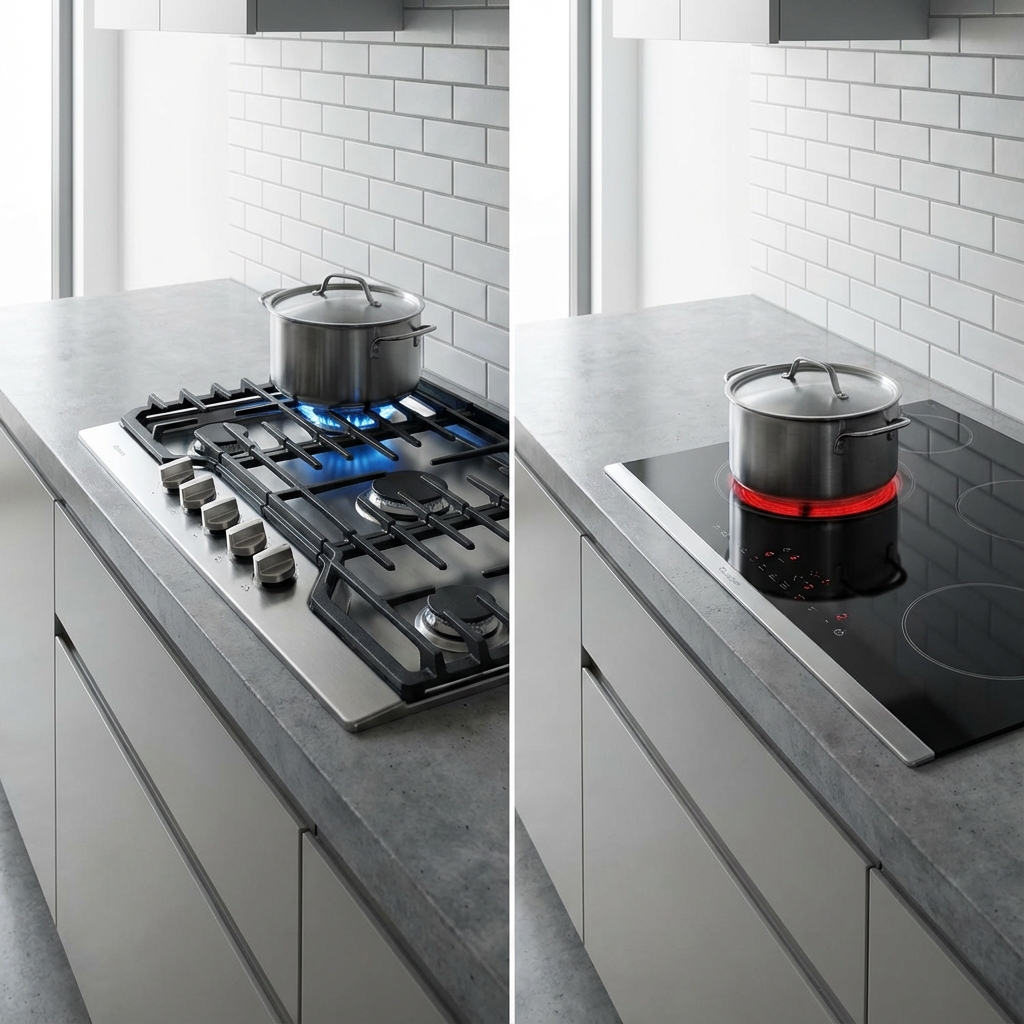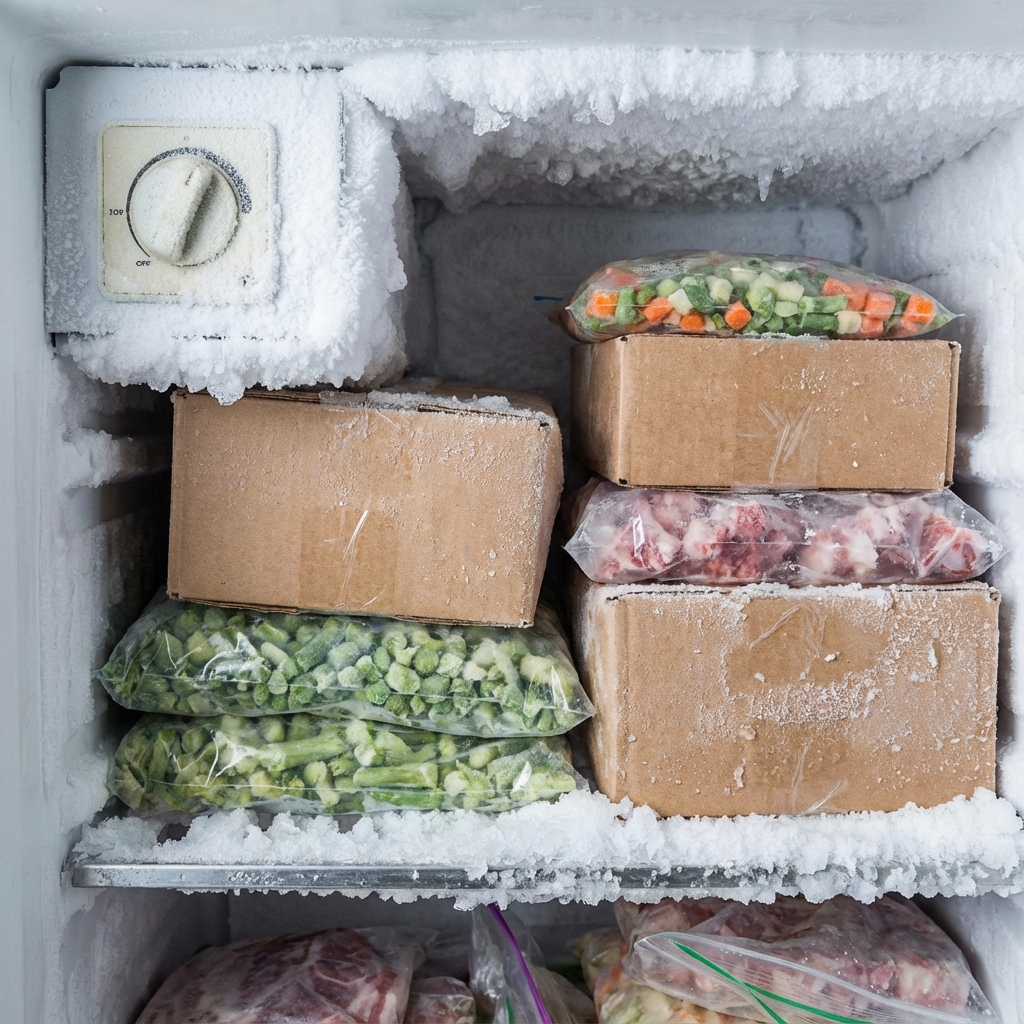Gas vs Electric Appliances: Complete Comparison Guide for Toronto Homeowners
Choosing between gas vs electric appliances is one of the most important decisions for Toronto homeowners. With natural gas readily available and competitive electricity rates, understanding the benefits and drawbacks of each option can save you thousands in operating costs over time.
At JK Appliances Toronto, we service both gas and electric appliances throughout the GTA. Here's our comprehensive guide to help you make the best choice for your home, budget, and cooking preferences.
Quick Comparison Overview
💰 Operating Cost
- Gas Appliances: Lower (30-50% savings)
- Electric Appliances: Higher ongoing costs
🔧 Installation
- Gas Appliances: Complex (gas line required)
- Electric Appliances: Simpler (electrical only)
⚡ Performance
- Gas Appliances: Instant heat, precise control
- Electric Appliances: Even heating, consistent temp
🛡️ Safety
- Gas Appliances: Gas leak risk
- Electric Appliances: Electrical fire risk
🌱 Environmental Impact
- Gas Appliances: Direct emissions
- Electric Appliances: Clean (depends on grid)
🔨 Maintenance
- Gas Appliances: More complex
- Electric Appliances: Generally simpler
Gas vs Electric Ranges: The Kitchen Showdown
Gas Ranges: The Professional Choice
Advantages of Gas Cooking:
- Instant heat response - immediate temperature changes
- Precise temperature control for professional cooking
- Visual flame indication shows exact heat level
- Works during power outages (with manual ignition)
- Lower operating costs in Toronto (natural gas pricing)
- Preferred by professional chefs for responsiveness
Gas Range Performance:
- Faster boiling times for large pots
- Better wok cooking with high BTU burners
- Superior searing capabilities for meats
- Excellent low-heat simmering control
Disadvantages:
- Higher installation costs ($300-800 for gas line)
- Safety concerns (gas leaks, carbon monoxide)
- Heat loss to surrounding air (kitchen gets warmer)
- Uneven heating in ovens compared to electric
- Regular maintenance required for burners and igniters
Toronto Gas Availability: Natural gas is widely available throughout the GTA, with Enbridge providing service to most neighborhoods.
Electric Ranges: The Consistent Performer
Advantages of Electric Cooking:
- Even oven heating with superior temperature consistency
- Safer operation (no gas leaks or combustion)
- Easier installation in most homes
- Cleaner kitchen environment (no combustion byproducts)
- More precise baking results
- Induction options for ultimate efficiency and control
Electric Range Performance:
- Superior baking results from even heat distribution
- Consistent temperatures maintained automatically
- Flat cooktop surfaces easier to clean
- Energy efficiency especially with induction technology
- Advanced features like touch controls and smart connectivity
Disadvantages:
- Higher operating costs in Ontario electricity market
- Slower temperature response when adjusting heat
- No cooking during power outages
- Heat retention in electric coils can overcook food
- 240V electrical requirements may need upgrades
Gas vs Electric Dryers: Efficiency Matters
Gas Dryers: The Cost-Effective Choice
Gas Dryer Advantages:
- 50% lower operating costs compared to electric
- Faster drying times (average 30-40 minutes vs 45-60)
- Gentler on clothes due to moist heat
- Lower environmental impact in many regions
- Consistent performance regardless of electrical load
Toronto Cost Analysis:
- Gas dryer operation: $0.15-0.25 per load
- Electric dryer operation: $0.30-0.50 per load
- Annual savings: $150-300 for average family
Gas Dryer Performance:
- Heats up quickly to target temperature
- Maintains consistent heat throughout cycle
- Shorter cycle times save time and reduce wear
- Better for heavy items like comforters and towels
Installation Requirements:
- Gas line connection required (professional installation)
- Proper venting essential for safety
- Carbon monoxide considerations need ventilation
Electric Dryers: The Standard Choice
Electric Dryer Advantages:
- Simpler installation in most homes
- No gas safety concerns (leaks, carbon monoxide)
- More widespread availability in rental properties
- Advanced features like steam cycles more common
- Consistent availability regardless of gas service
Electric Dryer Performance:
- Dry heat can be harsher on some fabrics
- Longer drying cycles typically required
- More energy consumption overall
- Reliable operation with proper maintenance
Installation Considerations:
- 240V electrical connection required
- Proper grounding essential for safety
- Circuit capacity may need upgrading in older homes
Water Heaters: Gas vs Electric Analysis
Gas Water Heaters: Fast Recovery
Gas Water Heater Benefits:
- Faster recovery time (tank refills hot water quickly)
- Lower operating costs typically 30-50% less
- Continues heating during power outages
- Higher flow rates for simultaneous use
- Longer lifespan in many cases (8-12 years average)
Performance Advantages:
- Quick reheating after heavy usage
- Consistent water temperature during high demand
- Better for large families with high hot water usage
Electric Water Heaters: Efficient and Clean
Electric Water Heater Benefits:
- Higher energy efficiency (nearly 100% vs 80-85% gas)
- No venting requirements simplifies installation
- Safer operation (no combustion or gas leaks)
- Quieter operation than gas units
- More placement flexibility without venting needs
Toronto Electricity Considerations:
- Time-of-use rates can affect operating costs
- Clean electricity grid in Ontario (mostly nuclear/hydro)
- Potential for solar integration in future
Cost Analysis: Toronto Market
Initial Installation Costs
Gas Appliance Installation:
- Gas line installation: $300-800 per appliance
- Professional connection: $150-300
- Venting requirements: $200-500 additional
- Permits and inspections: $100-200
Electric Appliance Installation:
- 240V circuit installation: $200-500
- Electrical upgrades: $300-800 (if needed)
- Professional installation: $100-250
- No special venting in most cases
Operating Cost Comparison (Annual)
Gas Appliances (Toronto Rates):
- Gas range: $60-120 annually
- Gas dryer: $90-150 annually
- Gas water heater: $200-350 annually
Electric Appliances (Ontario Rates):
- Electric range: $120-200 annually
- Electric dryer: $180-300 annually
- Electric water heater: $400-600 annually
10-Year Operating Savings with Gas:
- Ranges: $600-800 savings
- Dryers: $900-1,500 savings
- Water heaters: $2,000-2,500 savings
Environmental Impact Comparison
Gas Appliances Environmental Factors
- Direct combustion produces CO2 and other emissions
- Natural gas extraction environmental concerns
- Local air quality impact from combustion
- Greenhouse gas emissions at point of use
Electric Appliances Environmental Factors
- Ontario's clean electricity grid (60% nuclear, 25% hydro)
- No direct emissions at point of use
- Grid improvements make electric cleaner over time
- Potential for renewable energy integration
Environmental Winner in Ontario: Electric appliances have lower overall emissions due to Ontario's clean electricity grid.
Safety Considerations
Gas Appliance Safety
Potential Risks:
- Gas leaks can cause explosions or poisoning
- Carbon monoxide production requires proper ventilation
- Flame hazards from open burners
- Professional installation essential for safety
Safety Measures:
- Gas leak detectors recommended in homes
- Annual inspections of gas lines and connections
- Proper ventilation required for all gas appliances
- Emergency shutoff knowledge essential
Electric Appliance Safety
Potential Risks:
- Electrical fires from overloaded circuits
- Shock hazards from improper grounding
- Arc faults in older electrical systems
Safety Measures:
- GFCI protection where required
- Proper electrical capacity for appliance loads
- Regular electrical inspections recommended
Performance in Toronto Climate
Winter Considerations
- Gas appliances less affected by cold weather
- Electric grid stress during extreme cold can affect performance
- Heating costs impact overall energy budget
- Power outage considerations during storms
Summer Considerations
- Gas appliances add heat to home (increase AC costs)
- Electric appliances may be more efficient with cooler operation
- Peak electricity demand affects rates and reliability
Best Choice by Household Type
Large Families (4+ People)
Recommended: Gas for dryer and water heater, electric for range
- High hot water usage benefits from gas water heater speed
- Frequent laundry loads save significantly with gas dryer
- Cooking precision may benefit from electric oven consistency
Small Households (1-2 People)
Recommended: All-electric or mixed based on existing infrastructure
- Lower usage reduces gas savings benefits
- Installation costs may outweigh operating savings
- Convenience factors may be more important
Serious Cooks
Recommended: Gas range, electric oven combination if possible
- Gas cooktop for responsive temperature control
- Electric oven for consistent baking results
- Professional features available in both types
Budget-Conscious Buyers
Recommended: Gas where existing infrastructure allows
- Operating cost savings significant over appliance lifetime
- Consider used market for gas appliances
- Factor installation costs into decision
Future Considerations
Technology Trends
- Induction electric cooking gaining popularity for efficiency
- Smart features more common in electric appliances
- Heat pump dryers offering electric efficiency improvements
- Hybrid water heaters combining electric efficiency with performance
Infrastructure Changes
- Building electrification trends in new construction
- Carbon pricing may affect gas costs
- Grid modernization improving electric reliability
- Renewable energy integration favoring electric
Professional Installation Recommendations
When to Choose Gas
- Existing gas lines in home
- High usage patterns (large families)
- Professional cooking requirements
- Lower long-term operating costs priority
When to Choose Electric
- No existing gas infrastructure
- Safety concerns about gas appliances
- Environmental priorities in clean grid regions
- Advanced features desired
Professional Consultation Required
- Gas line installations need certified technicians
- Electrical upgrades require licensed electricians
- Permit requirements vary by municipality
- Safety inspections mandatory for gas appliances
FAQ: Gas vs Electric Appliances
Q: Can I convert my electric appliances to gas? A: Yes, but requires professional gas line installation and may need permits. Cost varies $500-1,500 per appliance.
Q: Which is safer - gas or electric? A: Both are safe when properly installed and maintained. Electric has fewer safety concerns but gas is very safe with proper precautions.
Q: Will gas appliances work during power outages? A: Gas ranges work with manual ignition, but gas dryers and water heaters typically need electricity for controls and fans.
Q: Are gas appliances better for the environment in Toronto? A: No, Ontario's clean electricity grid makes electric appliances more environmentally friendly overall.
Professional Appliance Consultation
Expert Guidance: JK Appliances Toronto provides personalized recommendations for gas vs electric appliances based on your specific home, usage patterns, and budget.
Our Services:
- Home energy assessments
- Installation feasibility evaluations
- Cost-benefit analysis for your situation
- Professional installation and service
- Both gas and electric appliance expertise
Service Areas:
- Downtown Toronto
- Toronto
- North York
- Mississauga
- Brampton
- Markham
- Richmond Hill
- Vaughan
- Ajax
- Oakville
- Burlington
- Milton
Contact Us for Professional Appliance Consultation in Toronto:
- Email: services@jkappliances.ca
- Book a call: Book Now
- Phone: +1 6475608966
- Address: 1234 Main St, Toronto, ON M5V 2L7
- Hours: Monday - Friday, 9:00 AM - 6:00 PM (EST)
Need help deciding between gas and electric appliances for your Toronto home? Contact JK Appliances at +1 6475608966 for expert consultation based on your specific needs and local conditions.



![Refrigerator Compressor Not Working? Complete Repair Guide for Toronto Homeowners [2025]](/images/blog/refrigerator/fridge_compressor_1765552159517.png)
